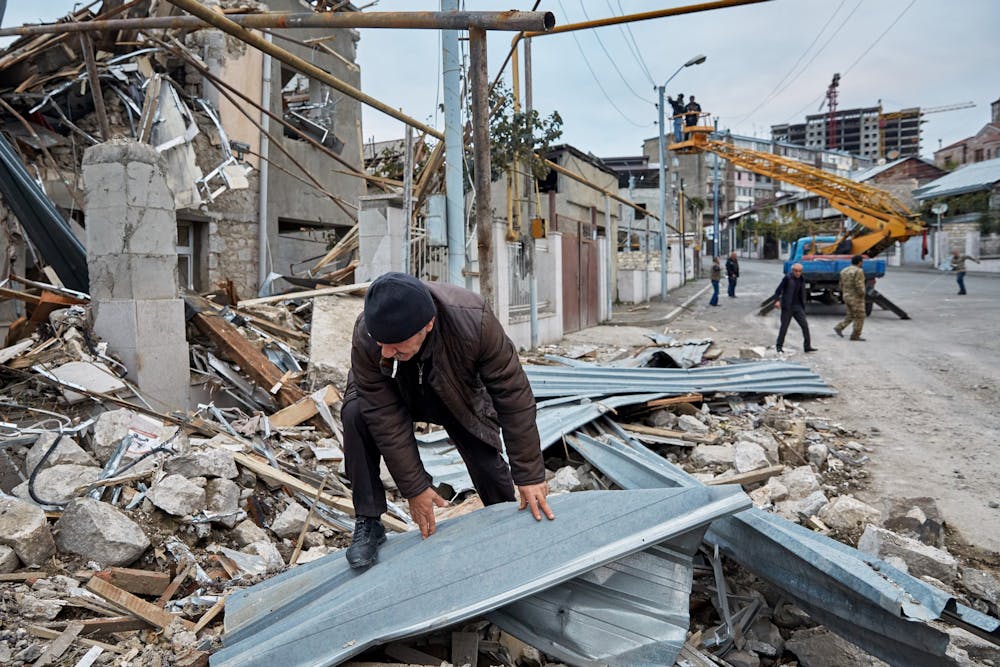New conflict burns in the territory of Nagorno-Karabakh, with Armenia and Azerbaijan accusing each other of violating terms of a ceasefire negotiated by Russia.
Nagorno-Karabakh, also known as Artsakh, is a mountainous region between Azerbaijan and Armenia and is the subject of the conflict. In 1993, the United Nations Security Council ruled the disputed territory belonged to Azerbaijan.
The conflict reaches across the globe to those at IU with ties to the regions.
“There is no ground things at Nagorno-Karabakh have ever belonged to Armenia,” said Zaur Zeynalov, an Azerbaijani graduate student at IU.
However, the Armenians, who have been living in the region for decades, see the territory as their home and a part of their culture.
“I think that Armenians as a nation are very peace loving, hospitable friendly people,” said Ani Abrahamyan, an Armenian Ph.D. student in the Department of Slavic and East European Languages and Cultures. “But when our land is attacked, our right to exist is attacked, we're going to defend it.”
Conflict flared on Sept 28, with the president of the Republic of Azerbaijan accusing Armenia of firing upon the country, resulting in civilian and military casualties, according to a decree by President Ilham Aliyev on Sept. 27.
In response, the Republic of Armenia accused the Azerbajainis of lying about who instigated the hostilities in a Sept. 28 statement.
The conflict is decades old and has hurt families who have endured the violence, such as Abrahamyan’s, whose father was killed in the initial war for Nagorno-Karabakh in 1994.
“As someone who was displaced by war and was raised in a single parent family, I understand the pain and the suffering of the children who are facing the same fate as me right now, back at home,” Abrahamyan said.
However, both sides have felt that violence has developed beyond simply defending their home countries. Armenia has targeted areas that are not a part of Nagorno-Karabakh, an action that goes beyond defense, Zeynalov said.
He said the government of Azerbaijan sees the fight over Nagorno-Karabakh as a larger legal issue with serious international implications.
“Either we should forget about international law or we should defend by the end that international law is recognized by all countries in the world,” he said.
Abrahamyan has faced tension on social media for posts she tagged as being located in Nagorno-Karabakh.
“It ranges anywhere from just little flags, Azerbaijan flags, Turkish flags, to things like ‘Karabakh is Azerbaijan’ to things like, 'we will kill you,'” Abrahamyan said.
She feels IU members from both sides of the conflict remain respectful. She teaches Russian language and has an Azerbaijani student in her class.
“Both of us were very professional about it, and we think that's one of the key things to any attempt of resolving the conflict is people being able to discuss their experiences on both sides,” Abrahamyan said.




